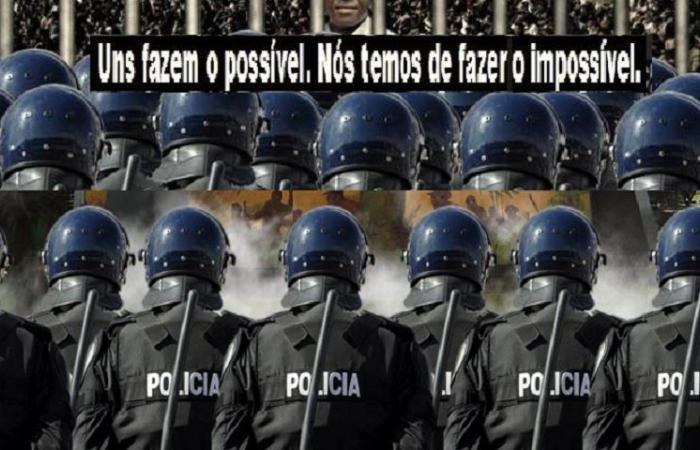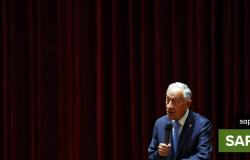Angola’s (read MPLA’s) proposed national security law could harm the public’s right to information and seriously undermine press freedom, further exposing journalists to harassment, intimidation and censorship (and if necessary to death) by authorities, says CPJ – Committee to Protect Journalists.
A National Security Law, which critics say threatens Angola’s democracy (which, in fact, doesn’t even exist) and could transform the country into an even more ironclad dictatorship, is currently being analyzed by a specialized commission after being approved in the first vote in the MPLA National Assembly, on January 25, on the review and resubmission of the bill for a final parliamentary vote before being sent for presidential signature.
“If passed, Angola’s National Security Law will expose journalists to further harassment and intimidation by authorities and legalize the shutdown of telecommunications at the whim of security agencies,” said Muthoki Mumo, CPJ’s Africa program coordinator, in Nairobi. “The provisions that cite constitutional limits on the exercise of power cannot disguise the repressive intention of this law. Parliamentarians must reject or review any bill that does not meet international human rights standards,” he said.
According to a copy of the bill reviewed by CPJ, the proposed law would create a national security system led by the president – and including the police, intelligence services and military – with the power to “prohibit the broadcasting of public channels or private radio systems” or interrupt telecommunications services, under undefined “exceptional circumstances” and “within the limits of the Constitution”.
The proposed law would also give the police autonomy to monitor “installations, buildings and establishments” and “means of transport”, as well as temporarily close public places or prohibit the movement of people “whose activity is likely to disturb public order” for a period of time. undefined. It does not establish specific provisions for judicial oversight of these “preventive” national security measures, does not outline procedures for security personnel to request warrants for surveillance activities, nor does it define activities that would be considered disturbing public order.
Teixeira Cândido, secretary general of the Union of Angolan Journalists, told CPJ that provisions that give security agencies the power to interrupt telecommunications and turn off the Internet “for no apparent reason” could make journalistic work “impossible.”
David Boio, owner of the online news site Camunda News, which suspended operations indefinitely in 2023 due to police harassment, said the proposed law would provide authorities with the missing “legal framework” needed to “justify their actions against critics ”.
“The bill is as invasive as possible, with authorities authorized to legally place journalists and anyone else under surveillance, bug their homes and cars without the intervention of a judge, all at the discretion and at the mercy of the repressive apparatus itself,” Boio told CPJ.
Florindo Chivucute, president of the human rights group Amigos de Angola, told CPJ that the proposed national security law fits into a pattern of repressive legislation, including a Non-Governmental Organizations (NGO) bill under consideration by the National Assembly. .
André Mussamo, president of the Angolan section of the Social Communication Institute of Southern Africa (MISA), told CPJ that MISA Angola and other NGOs that defend media freedom could face “extinction” by government directive if the proposed NGO law was approved.
Contacted by phone, the Secretary General of the National Assembly, Pedro Neri, refused to comment on the proposed security legislation and referred CPJ to António Paulo, president of the first specialized parliamentary committee that is analyzing the bill. António Paulo declined to comment on the national security or NGO bills, saying that he wanted to “avoid influencing the review process” but that he welcomed contributions from civil society during the process.
Folha 8 already felt it in 2012
NOn March 12, 2012, the Committee for the Protection of Journalists published the text “Angolan Police confiscates independent newspaper computers”, which we transcribe below in full:
«The Committee for the Protection of Journalists condemned the police raid on the independent weekly Folha 8, carried out today amid a politicized investigation into the publication of a satirical photomontage. The police seized all of Folha 8’s computers, effectively crippling the operation of one of the two remaining independent publications in the country.
Approximately 15 employees from Angola’s National Directorate of Criminal Investigation arrived at the Folha 8 office in Luanda around 1 p.m., the newspaper’s editor-in-chief, Fernando Baxi, told CPJ. Employees took around 20 computers from the newsroom, the newspaper’s deputy director, António Setas, told CPJ. They also forced Baxi to remove the battery from his cell phone during the raid, to prevent him from communicating with anyone, Setas reported.
Today, in an interview with the Portuguese agency LUSA, the director of Folha 8, William Tonet, said that the raid was related to the investigation by the Public Ministry in December 2011 into the publication of a satirical photomontage published on the internet in which President José Eduardo dos Santos, vice-president Fernando Piedade Dias dos Santos and the minister of State and head of the Military House of the Presidency of the Republic, general Hélder Vieira Dias “Kopelipa”. No formal charges were filed during the investigation, but the newspaper’s computers could be used as evidence against him in the case, local journalists told CPJ.
CPJ obtained a copy of the search and seizure warrant signed by Public Prosecutor João Vemba Coca, which requested the seizure of all computers and tools used to commit “acts that constitute a crime of outrage against the State, the person of the president, and executive bodies”. Folha 8 has reported on government corruption and has also covered recent anti-government protests against Dos Santos’ 32 years in power, according to CPJ research. The lack of computers makes publishing the newspaper unfeasible.
Police spokesperson Carmo Neto did not immediately respond to CPJ requests for comment.
“The seizure of Folha 8’s computers is a simple act of censorship, aimed at silencing one of the few remaining independent media outlets in Angola,” said CPJ’s defense coordinator for African journalists, Mohamed Keita. “Satire is not an outrage against the state – it is an important part of vigorous debate in a free society. We ask the Angolan authorities to return the computers to Folha 8 once and for all and interrupt this politically motivated investigation.”
Folha 8 journalists were previously targeted. In October 2010, authorities imposed a one-year suspended prison sentence on Tonet and a fine of 10 million Kwanza (US$105,000.00), which is still being appealed. The journalist had written about alleged cases of corruption and abuse of power by five high-ranking officials close to President Santos, according to local journalists.»






